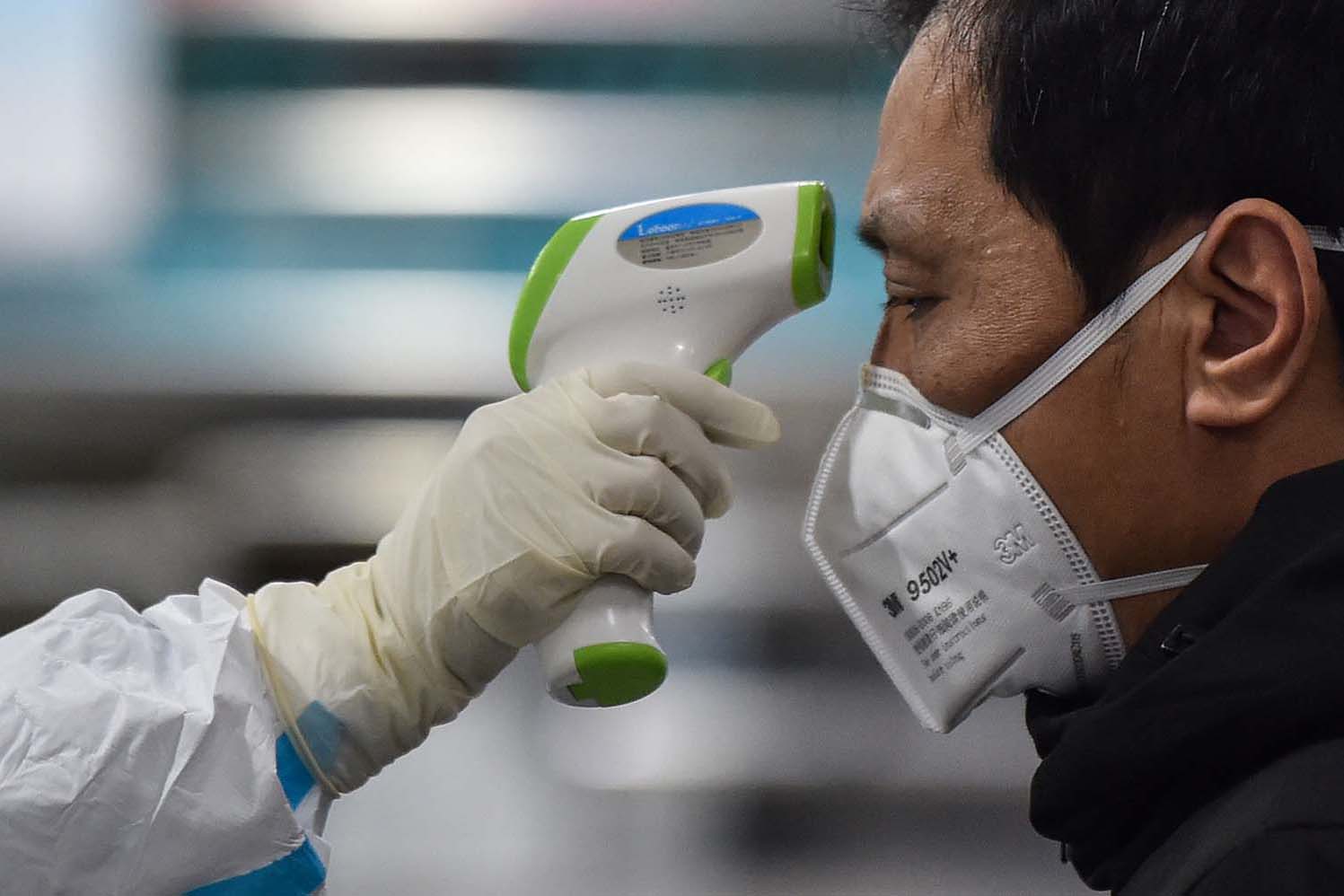ALARMING NEWS! New Chinese Research On Coronavirus Finds Incubation Period Of Up To 24 Days!
Source: Thailand Medical News Feb 11, 2020 5 years, 10 months, 1 week, 6 days, 16 hours, 8 minutes ago
A new medical and clinical study on the
coronavirus based on data gathered from more than 1,000
coronavirus patients in Wuhan, China revealed that the
incubation period for the
coronavirus was as long as 24 days rather than the previously believed 14 days, and also significantly, fewer than half of the patients showed
fever symptoms when they first saw doctors.

The new research study produced by more than 36 Chinese researchers and doctors from Chinese hospitals and medical schools led by Dr Zhong Nanshan, a Chinese epidemiologist who discovered the SARS coronavirus in 2003, showed that much is still unknown about the deadly virus named 2019-nCoV.
The research and analysis also revealed disturbingly that early-identification method might have defects that could have resulted in large numbers of infected people going undiscovered.
It was observed that
fever occurred in just 43.8% of patients but later developed in 87.9% following hospitalization, according to the study.
The research also noted that the absence of
fever in 2019-nCoV
coronavirus cases was more frequent than in SARS and MERS infections.
The researchers warned that such patients may be missed if the surveillance case definition focused heavily on
fever detection.
Diagnostics Nightmare
Initially, before patients went through nucleic acid tests (NATs) to confirm being infected, their CT scans had to show signs of viral infection, commonly reflected as ground-glass opacity or bilateral patchy shadowing in the chest.
However alarmingly among the 840 patients in the study who underwent CT scans, only half showed ground-glass opacity and 46% showed bilateral patchy shadowing.
Hospitals in Wuhan and all over China were initially using this protocol which now has severe implications as the study shows that relying on CT scans alone could fail to identify a significant proportion of infected patients.
The National Health Commission on Jan. 27 revised its diagnostic criteria nationwide such that CT scans indication pneumonia were no longer required to identify suspected
coronavirus cases.
However as there is growing concern that the nucleic acid tests or NATs are producing large numbers of false negatives due to inaccuracy in the diagnostics itself, some physicians suggested the inclusion of CT scanning as a more effective and safe basis for diagnosing
coronavirus infections.
The new research was study published on
9
th Of January in the medical research archive medRxiv. MedRxiv said that it has not been peer-reviewed but confirmed that all 36 researchers were leading physicians and medical researchers on the ground level working at the epicenters of the
coronavirus outbreak at Wuhan and also in other parts of China.
It was reported that the patients in the study came from 552 hospitals in 31 provinces from Jan. 1-29.
The research said that only 1.18% of patients had been in direct contact with wildlife, where researchers speculate the virus might have originated.
Almost one-third of the patients had been to Wuhan and 71.8% had been in contact with someone from Wuhan, the epicenter of the outbreak, providing further evidence of human-to-human
coronavirus transmission.
The study findings are consistent with recent reports of infections from family gatherings and transmission from people without any symptoms.
The research study cannot preclude the presence of “super-spreaders,” a small group of people who transmit infections to far more people than the majority do, the authors said.
The conventional routes of transmission such as respiratory droplets and direct contact might have contributed considerably to the rapid spread of the new virus, the study concluded.
The study however found that four out of 62 stool specimens, or 6.5%, tested positive to 2019-nCoV
coronavirus, and four more patients who tested positive in rectal swabs had the 2019-nCoV detected in the gastrointestinal tract, saliva or urine.
Hence, the researchers called for integrating systemic protection measures, taking into account transmission via gastrointestinal secretions.
The research also revealed how much threat of
coronavirus infection medical workers face. Among the 1,099 patients, 2.09% were medical workers.
As of Tuesday, the death toll in China is now 1013 with more than 42, 780 confirmed infected cases and more than 6,508 in severe critical condition.
However, China’s health authorities haven’t disclosed how many medical workers are infected with the
coronavirus.
A recent report released by the South Central Hospital of Wuhan University, one of the designated hospitals to accept
coronavirus patients, showed that 40 doctors and nurses were confirmed with infection as of Jan. 28
Reference :
https://www.medrxiv.org/content/10.1101/2020.02.06.20020974v1.full.pdf
For latest developments and news about
coronavirus research, the
coronavirus epidemic or the
Thailand Coronavirus scenario, keep on checking at:
https://www.thailandmedical.news/articles/coronavirus
